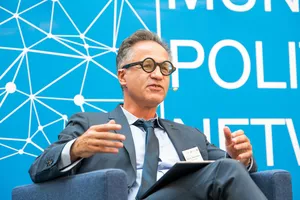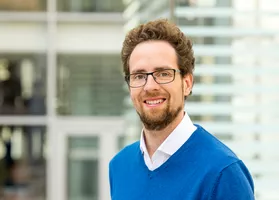Fellows and Research Scholars at the Chair
Prof. Dr.
Kathleen Thelen
Ford Professor of Political Science at Massachusetts Institute of Technology (MIT)
TUM-IAS Hans Fischer Senior Fellow

Kathleen Thelen is Ford Professor of Political Science at the Massachusetts Institute of Technology (MIT). In 2015 she was elected to the American Academy of Arts and Sciences and in 2009 to the Berlin-Brandenburg Academy of Sciences and Humanities. Thelen is General Editor of the Cambridge University Press Series in Comparative Politics and is a permanent external member of the Max Planck Institute for the Study of Societies. This year she was appointed Hans Fischer Senior Fellow of the TUM Institute for Advanced Study. She is also the winner of many awards, among others the Barrington Moore Book Award, the Woodrow Wilson Foundation Award and the Mattei Dogan Award for Comparative Research. Kathleen Thelen works in the field of comparative political economy, where she concentrates on the origins and evolution of political-economic institutions in rich democracies. In the past few years she has pursued an important research agenda on the governance of new technologies, in particular addressing the question of how large technology companies can be regulated. Her widely acclaimed publications include for example "Regulating Uber: The Politics of the Platform Economy in Europe and the United States" and "Are We All Amazon Primed? Consumers and the Politics of Platform Power".
Joint Reserach Project: Comparative-Historical Perspectives on Platform Capitalism
Prof. Dr.
Orfeo Fioretos
Professor of Political Science at Temple University
TUM August-Wilhelm Scheer Visiting Professor

Orfeo Fioretos is professor of Political Science at Temple University, where he teaches courses in international relations, international political economy, global governance and related topics, often including coverage of Europe. He is the recipient of the Distinguished Teaching Award from the College of Liberal Arts, and has served as Chair of the Undergraduate and Departmental Honors Programs. Fioretos' research is focused on the politics of markets and international institutions. He is author of Creative Reconstructions: Multilateralism and European Varieties of Capitalism After 1950 (Cornell University Press, 2011), editor of International Politics and Institutions in Time (Oxford University Press, 2017), and co-editor with Tulia G. Falleti and Adam Sheingate of The Oxford Handbook of Historical Institutionalism (Oxford University Press, 2016). Articles by Fioretos are published in International Organization, Review of International Political Economy, Comparative Political Studies, Journal of European Public Policy, and Review of International Studies. His work also appears in Varieties of Capitalism: The Institutional Foundations of Competitive Advantage (edited by Peter A. Hall and David Soskice), Making History: European Integration and Institutional Change at Fifty (edited by Sophie Meunier and Kathleen McNamara), the Oxford Handbook of the European Union (edited by Erik Jones, Anand Menon, and Stephen Weatherill), and Historical Institutionalism and International Relations (edited by Thomas Rixen, Lora Viola and Michael Zürn). Ongoing research projects examine informal international institutions; legacies and innovations in global economic governance; summitry; and dynamics of international political development. Fioretos received his Ph.D. from Columbia University. He is former president of the International History and Politics Section of the American Political Science Association, and has been a guest researcher at King's College London, Wissenschaftszentrum Berlin, Sciences-Po Paris, University of California - Berkeley, Washington University in Saint Louis, and Georgetown University. He was recently a Fulbright Fellow to the United Kingdom, the August-Wilhelm Scheer Visiting Professor at TUM School of Governance, Munich, and a Fellow at the Center for Advanced Studies, Ludwig-Maximilians-Universität München.
Joint Reserach Project: Legacies and Innovations in Global Economic Governance Since Bretton Woods
Prof. Dr.
Susan Park
Professor of Global Governance at the University of Sydney
TUM-IAS Hans Fischer Senior Fellow

Susan Park is Professor of Global Governance at the University of Sydney. She focuses on how state and non-state actors use formal and informal influence to make the Multilateral Development Banks (MDBs) and global governance greener and more accountable. Susan has published in numerous journals, most recently in the Review of International Political Economy. Her new book is International Organisations and Global Problems: Theories and Explanations (Cambridge University Press, 2018). In 2010 she published The World Bank Group and Environmentalists (Manchester). Susan has co-edited special editions and books including Global Environmental Governance and the Accountability Trap (2019, MIT Press with Teresa Kramarz). Susan is an Associate Editor of the journal Global Environmental Politics and is Co-Convenor with Dr Teresa Kramarz (University of Toronto) of the Earth Systems Governance (ESG) Task Force ‘Accountability in Global Environmental Governance.’ Previously Susan served as the Chair of the Environmental Studies Section of the (2015 to 2017). She is a Senior Research Fellow of the ESG, an affiliated Faculty member of the Munk School’s Environmental Governance Lab at the University of Toronto, and an External Associate of the Centre for the Study of Globalisation and Regionalisation at Warwick University.
Dr.
Henning Schmidtke
Research Fellow at the German Institute for Global and Area Studies (GIGA)
Research Scholar at the Chair of European and Global Governance

Henning Schmidtke is Research Fellow at the German Institute for Global and Area Studies (GIGA). From September 2022, he will also be a John F. Kennedy Fellow at the Minda de Gunzburg Center for European Studies at Harvard University. In 2019, Schmidtke won the International Geneva Award. He works in the field of international relations and international political economy, where he concentrates on the origins, evolution, and public legitimacy of international institutions. In the past years, Henning Schmidtke has pursued a research agenda on the (de-)legitimation of international organizations, particularly addressing the question of how, why, and with what consequences international organizations justify their authority. His work has been published in the Review of International Organizations, Review of International Studies, and the Review of International Political Economy.